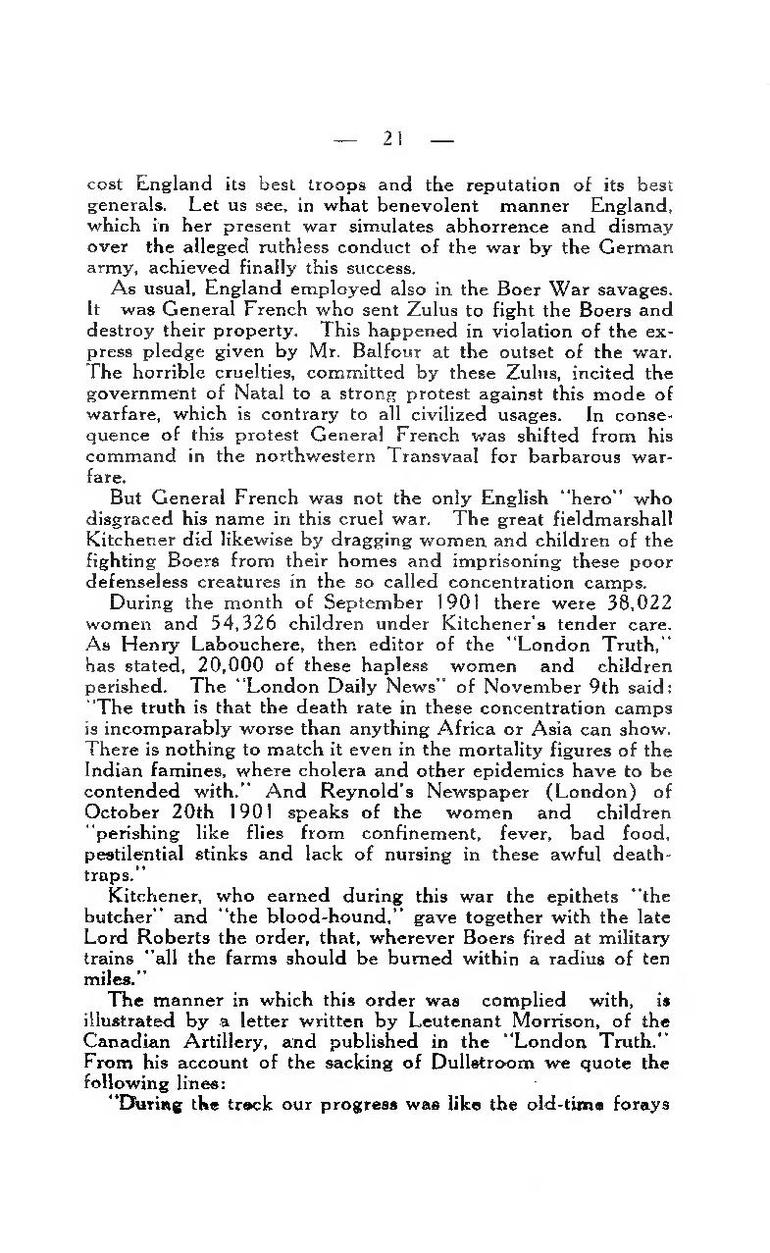— 21 —
cost England its best troops and the reputation of its best generals. Let us see, in what benevolent manner England, in her present war simulates abhorrence and dismay over the alleged ruthless conduct of the war by the German army, achieved finally this success.
As usual, England employed also in the Boer War savages. It was General French who sent Zulus to fight the Boers and destroy their property. This happened in violation of the express pledge given by Mr. Balfour at the outset of the war. The horrible cruelties, committed by these Zulus, incited the government of Natal to a strong protest against this mode of warfare which is contrary to all civilized usages. In consequence of this protest General French was shifted from his command in the northwestern Transvaal for barbarous warfare.
But General French was not the only English "hero" who disgraced his name in this cruel war. The great fieldmarshall Kitchener did likewise by dragging women and children of the fighting Boers from their homes and imprisoning these poor defenseless creatures in the so called concentration camps.
During the month of September 1901 there were 38,022 women and 54,326 children under Kitchener's tender care. As Henry Labouchere, then editor of the "London Truth," has stated, 20,000 of these hapless women and children perished. The "London Daily News" of November 9th said: "The truth is that the death rate in these concentration camps is incomparably worse than anything Africa or Asia can show. There is nothing to match it even in the mortality figures of the Indian famines, where cholera and other epidemics have to be contended with." And Reynold's Newspaper (London) of October 20th 1901 speaks of the women and children "perishing like flies from confinement, fever, bad food, pestilential stinks and lack of nursing in these awful death-traps."
Kitchener, who earned during this war the epithets "the butcher" and "the blood-hound," gave together with the late Lord Roberts the order, that, wherever Boers fired at military trains "all the farms should be burned within a radius of ten miles."
The manner in which this order was complied with, is illustrated by a letter written by Leutenant Morrison, of the Canadian Artillery, and published in the "London Truth." From his account of the sacking of Dullstroom we quote the following lines:
"During the track our progress was like the old-time forays
